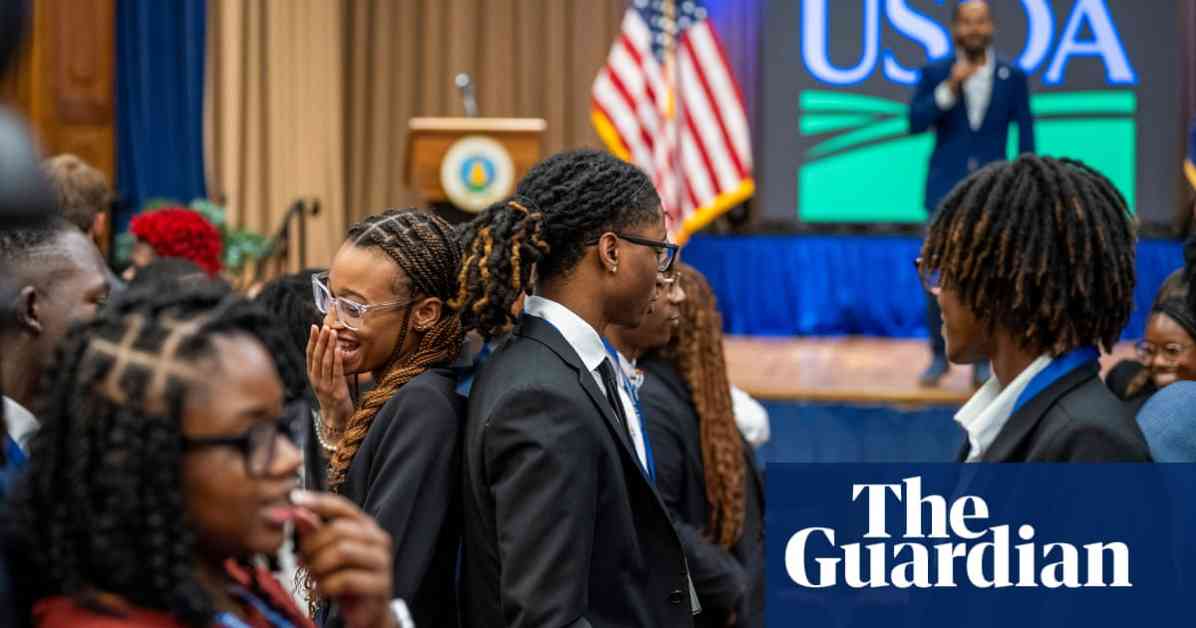Dr. Marcus Bernard, the Dean of the College of Agriculture, Health, and Natural Resources at Kentucky State University, was taken aback by the recent news that the US Department of Agriculture (USDA) had decided to suspend the 1890 National Scholars program. This program, which has been in place since 1992, provides funding for undergraduate students studying agriculture or related fields at approximately 20 historically Black colleges and universities (HBCUs) across the nation.
At Kentucky State University alone, nearly 40 scholars have benefitted from this program, and on a larger scale, more than 800 students have been supported nationwide. The 1890 scholarships have been instrumental in creating a pathway for rural and underrepresented students to pursue studies in areas such as animal science, botany, horticulture, nutrition, and forestry. Upon graduation, these scholars are placed in USDA positions all over the country.
The sudden suspension of the program left many individuals at Kentucky State University in a state of uncertainty. The university was informed that incoming scholarship recipients for Fall 2025 would not receive funding, jeopardizing their education and the future of current scholars. The situation seemed dire until a glimmer of hope appeared – the program was reopened, although the funding for the scholarship’s essential research and fieldwork components remained unclear.
Outcry and Criticism
The decision to halt the 1890 scholarships elicited strong reactions from various organizations, including the 1890 Foundation, the Association of 1890 Research Directors, and the Association of Public Land-Grant Universities. Representative Alma Adams from North Carolina condemned the suspension as a targeted attack on a program that has been instrumental in making higher education accessible to a diverse range of students. She stressed the critical role these scholars play in fields like food safety, agriculture, and natural resources, urging the USDA to reinstate the program immediately.
Alumni Stories
Alumni of the 1890 Scholars program shared their personal experiences, shedding light on the program’s profound impact on their lives and careers. Alvin Lumpkin, a former scholar from South Carolina State University, recounted his transformative journey as a student firefighter, where he gained valuable skills and experiences through the program’s hands-on initiatives. Similarly, Kermit Shockley, an engineering major from Florida A&M University, highlighted how the program broadened his horizons and equipped him with practical skills that shaped his career trajectory.
Both Lumpkin and Shockley emphasized the ripple effect of the 1890 Scholars program, noting that its suspension would not only impact individual scholars but also hinder critical research and community initiatives supported by these students. The loss of funding for such programs poses a significant threat to the educational landscape and the broader southern region, where many land-grant universities are situated.
Kentucky State University, in particular, faced a double blow as it grappled with the termination of a $1.2 million research grant aimed at enhancing the tree canopy in Louisville to combat urban heat stress. This setback underscores the far-reaching consequences of defunding essential educational and research initiatives that serve communities, farmers, and disaster victims across the state.
Overall, the future of agricultural students at Black colleges hangs in the balance as the fate of the 1890 National Scholars program remains uncertain. The stories of alumni like Lumpkin and Shockley serve as a poignant reminder of the program’s profound impact and the urgent need to safeguard educational opportunities for underserved communities. As stakeholders and advocates continue to rally for the reinstatement of the program, the resilience and determination of these scholars stand as a testament to the enduring spirit of innovation and progress in the face of adversity.

